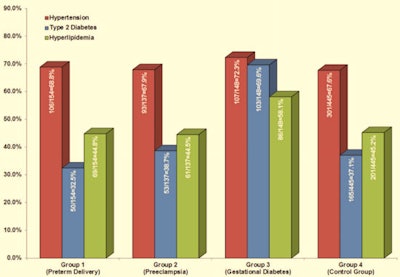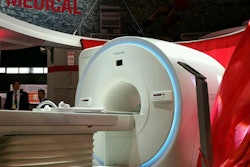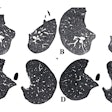
CHICAGO - African-American women who experience common pregnancy complications are more likely to present with coronary artery disease at CT decades later, according to a new study presented on Sunday at the RSNA meeting.
Researchers from the Medical University of South Carolina (MUSC) performed coronary CT angiography (CCTA) on more than 400 black women who had a history of pregnancy complications when they were younger, hoping to gain insight into the known cardiovascular risks associated with common pregnancy complications. They found that women with a history of pregnancy complications such as preterm delivery and pre-eclampsia were more likely to present with atherosclerotic disease 20 or 30 years later.
"A history of gestational diabetes was the most significant predictor of the presence of obstructive atherosclerosis later on in life ... and higher rates of coronary disease were seen with all of these pregnancy complications," said Dr. Julian Wichmann.
Pregnancy and atherosclerosis
Pregnancy complications, particularly pre-eclampsia and gestational diabetes, have previously been associated with the development of atherosclerotic disease, Wichmann said. African-American women have a higher prevalence of cardiovascular risk factors and have worse outcomes after developing coronary atherosclerosis.
 Dr. Julian Wichmann from MUSC.
Dr. Julian Wichmann from MUSC."That's partially from a socioeconomic standpoint, and there are papers on that topic," he said. To date, however, imaging has not been used to study the association between pregnancy complications and the development of atherosclerosis, according to Wichmann.
The retrospective study, part of a larger MUSC study of atherosclerotic disease, evaluated the effect of three pregnancy complications -- pre-eclampsia, gestational diabetes, and preterm delivery -- on the prevalence, extent, and severity of coronary atherosclerosis detected by CCTA, which was acquired between 2005 and 2014.
The patients were matched by average age at CCTA, average age at first delivery, number of pregnancies, body mass index (BMI), and smoking history. There were 154 women with preterm delivery (group 1), 137 women with pre-eclampsia (group 2), 148 women with gestational diabetes (group 3), and 445 women without pregnancy complications who served as a control group (group 4). The average age at delivery and at CCTA, the total number of pregnancies, BMI, smoking history, and prevalence of hypertension or hyperlipidemia were similar between groups (p > 0.2 for all).
The exclusion criteria included multiple complications or complications during multiple pregnancies, nonspontaneous preterm delivery, abortion or miscarriage, and history of cardiovascular disease, Wichmann said. The average age at pregnancy was about 22 years, and the average age for CCTA was about 45 years.
Higher rates in all groups
All groups with prior pregnancy complications had higher rates of atherosclerosis, the researchers found.
| Atherosclerosis rates | ||
| Complication | Any atherosclerosis (≥ 20% luminal narrowing) | Obstructive atherosclerosis (≥ 50% luminal narrowing) |
| Preterm delivery | 29.2% | 9.1% |
| Pre-eclampsia | 29.2% | 7.3% |
| Gestational diabetes | 47.3% | 15.5% |
| Control group | 23.8% | 5.4% |
After accounting for confounding factors including smoking, hypertension, and hyperlipidemia at multivariate analysis, gestational diabetes remained a strong predictor of any (odds ratio [OR], 3.26; p < 0.001) and obstructive coronary atherosclerosis (OR, 3.00; p < 0.001) at coronary CTA.
In groups with any pregnancy complications, "we found a higher rate of both any coronary atherosclerosis and also obstructive disease, compared to the control group," Wichmann said. A history of gestational diabetes was the most significant predictor of any or obstructive atherosclerosis at CCTA later on in life, he noted. Looking at the p-values also showed that smoking, a history of diabetes, and hyperlipidemia were independent risk factors for atherosclerosis, regardless of whether there was history of pregnancy complications.
 Chart compares pregnancy complications with CCTA findings decades later. Image courtesy of Dr. Julian Wichmann.
Chart compares pregnancy complications with CCTA findings decades later. Image courtesy of Dr. Julian Wichmann.The cohort was unusual in its high prevalence of gestational diabetes as well as type 2 diabetes, Wichmann said.
"It's probably also a socioeconomic issue, but it's something that hasn't been reported in other studies," he said. "The presence of any of these pregnancy complications during pregnancy should be considered a risk factor for subsequent development of atherosclerosis. Of course, it's hard to follow up over the difference of 25 to 30 years between these patients giving birth" and undergoing CCTA.
"Future studies will look more comprehensively into risk factors, and compare results among African-American women with those of other groups," Wichmann said.




















